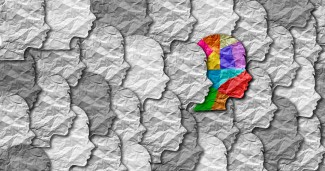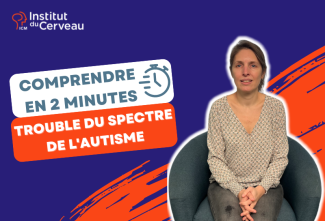Autism, or autism spectrum disorder, is a neurodevelopmental disorder that has two main symptoms: persistent problems with communication and social interaction in a variety of contexts; and restricted and repetitive behaviour, interests and activities.
ASD affects around 1% of the population. The severity of the disorder varies greatly from person to person. Around 30% of people with ASD have an associated intellectual developmental disorder.
This begins in early childhood and continues throughout life.
Biological mechanisms and causes of autism
There is no single cause of autism. Current research points to a combination of genetic, neurological and environmental factors (e.g. exposure to certain drugs during pregnancy).
Abnormalities in brain development have been observed in foetuses, particularly in specialised neural networks, and more than 100 predisposing genes have so far been identified.

Autism symptoms and diagnosis
The clinical picture for people with ASD varies greatly from one person to another in terms of symptoms and severity. However, these disorders share two common elements:
- Permanent and persistent problems with communication and interaction with others.
- Repetitive behaviours and/or rituals associated with fixed interests or activities that are highly restricted to certain areas.
ASD is diagnosed on the basis of formal standardised tests carried out by specialists (psychologists, neuropsychologists, psychomotor therapists, speech therapists, doctors, etc.). It can be diagnosed at any age.


Support for people with ASD
Support for people with ASD tends to be multidisciplinary. This is put in place based on observations made during diagnostic and functional assessments. Some support may be provided in groups, such as social skills groups. Support is also provided for associated disorders, which are very common in autism. There is no drug treatment for ASD; however, certain medications may be prescribed for associated disorders or to reduce behavioural problems.

Support Paris Brain Institute
Did you like this content and did it answer the questions you were asking? Don't hesitate to support Paris Brain Institute.



